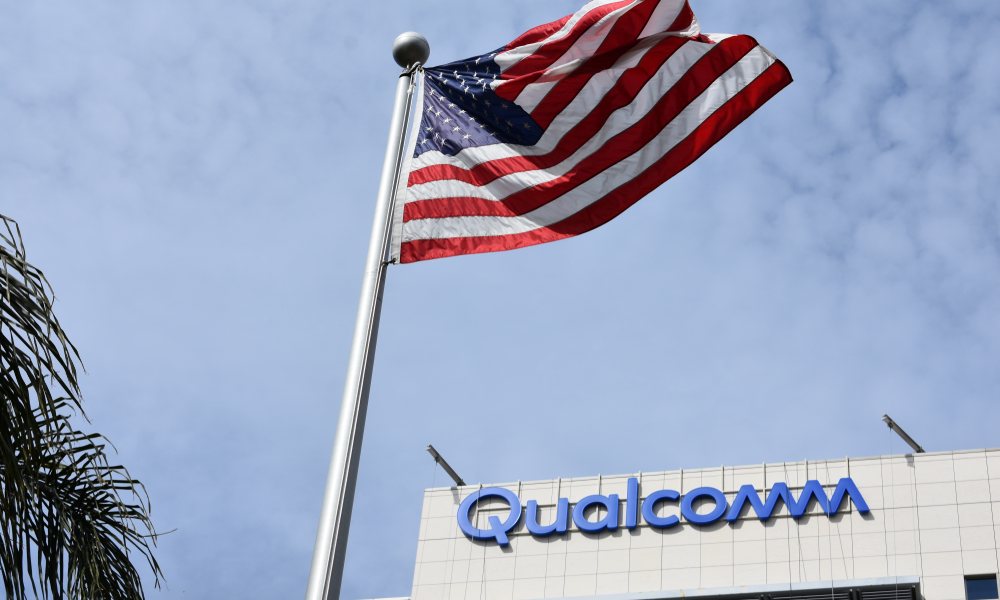Qualcomm Once Again Pushing for U.S. Import Ban on iPhones
 Credit: Akshdeep Kaur Raked / Shutterstock
Credit: Akshdeep Kaur Raked / ShutterstockToggle Dark Mode
Qualcomm has fired another salvo in its ongoing war with Apple, urging U.S. regulators to follow through on banning the import of some iPhone models after a judge found that Apple was infringing the company’s patents, but had declined to actually issue a ban.
According to Reuters, documents filed by Qualcomm with the U.S. International Trade Commission, point to Apple’s attempts to implement software fixes to avoid infringement on Qualcomm’s patents as an indication that the infringing iPhone models should not have escaped a ban by the ITC, since Apple’s ability to easily fix the infringement shows that any harm from a ban would have been entirely avoidable.
Qualcomm has been on a mission over the past two years of accusing Apple of infringing its patents and trying to get Apple’s iPhone banned in numerous countries. It has partially succeeded in at least two cases, with courts in both China and Germany banning sales of specific infringing iPhone models in those countries, although each country did so for entirely different reasons. The case in Germany was specific to infringement of wireless modem technology, similar to the suits being brought against Apple in the U.S., while the Chinese claim was for infringement of touchscreen design patents. In both cases, Apple has managed to circumvent the bans, claiming that only iOS 11 violates the patents in China, and therefore iOS 12 devices are non-infringing, and simply switching back to Qualcomm chips in Germany, eliminating the offending chip from the iPhones that were subject to the ban.
In the U.S., Qualcomm has made similar infringement claims to those in Germany, suggesting that iPhone models using Intel modems are infringing on Qualcomm’s patents. An administrative law judge for the U.S. International Trade Commission (ITC), Thomas Pender, issued a ruling last September that specific iPhone models did in fact infringe on at least one of the patents in the case, however Pender declined to issue a ban due to concerns that doing so would give Qualcomm an effective monopoly on the U.S. market for modem chips.
In his ruling, Pender noted that it was more important to preserve competition in the modem chip market for the public interest, particularly with 5G networks beginning to come online. Since cases where companies are found to violate patents but products aren’t banned are rare, the full ITC decided back in December that it would review Pender’s decision and issue its own ruling on whether to uphold it or reverse it by late March.
In additional filings to the ITC that only recently became public, Apple also disclosed that it had developed a software fix that would allow it to avoid infringing on one of Qualcomm’s patents, but that it did not discover this fix until after the trial. In its filing, Apple asked the commission for an additional six-month extension, in the event that Pender’s decision is reversed and an import ban is imposed on the company. The delay, Apple says, would help it to “verify that the fix will satisfy regulators” as well as selling of its existing inventory.
Pender recommended against a remedy on the assumption that the (Qualcomm) patent would preclude Apple from using Intel as a supplier for many years and that no redesign was feasible. Apple now admits—more than seven months after the hearing—that the alleged harm is entirely avoidable.
Qualcomm, in a filing to the ITC
In its filing, Qualcomm maintained that since Apple was able to so easily fix the problem, removing the infringing technology from Intel-equipped iPhones with a simple software update, that any long-term harm that was assumed by the original administrative judge didn’t in fact exist in the first place. Qualcomm is thereby insisting that the ITC ban all Intel-chipped iPhones until such time as Apple can demonstrate that it has deployed a fix that removes any infringement of Qualcomm’s patents.






